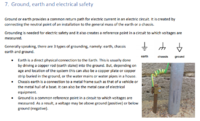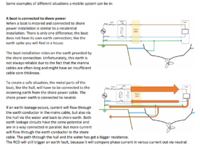I just found this on the interweb......
To comply with BS7671 sect 721 any PERMANENT 240 volt installation in a vehicle (including caravans and motorhomes etc) should have the incoming mains supply earth bonded to the vehicle chassis. It also worth noting that any metal gas pipes should also be earth bonded.
Seems like my gut feeling is incorrect (wouldn't be the first time either!!).
Deaks
thats where i was going next bringing in a 240v supply would need a bonding










